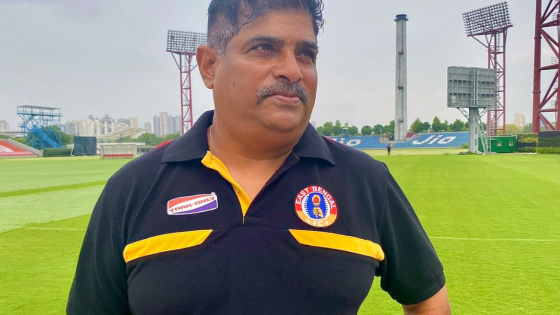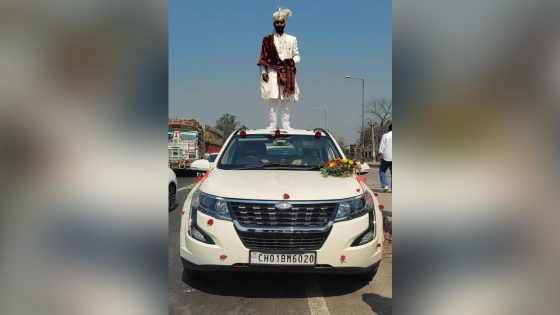Bino George had become a villain in West Bengal in 2022 when he helped Kerala beat Bengal in the 2021-22 Santosh Trophy final.
Two years later, his reputation has flown against that current as he has become a reliable member of the coaching staff of Kolkata giant East Bengal.
As the reserves team coach, he is set to guide the under-21 side of the club into the Next Gen Cup 2024, where it will play under-18 Premier League sides of Aston Villa, Tottenham Hotspur, Everton and Crystal Palace and could also play U-21 Stellenbosch FC on the final matchday.
In an exclusive interview with Sportstar, George talks about his experience in scouting youngsters and the team’s expectations from the tournament.
Q. You have brought in a flavour of Kerala into East Bengal which has seen the rise of very important youngsters such as Jesin TK and P. V. Vishnu. How important was this scouting process for those youngsters?
In 2005, I started as the assistant coach of Viva Kerala and was there till 2011. (During my time there), a lot of head coaches were changed but I stayed. Maybe because I am too passionate (about what I do). Since then, I started my scouting. From Kasargod to Trivandrum, I have connections. Be it any tournament, I will go and watch.
In the case of Jesin, I was once travelling in my car and I stopped at a college tournament. I stopped and watched him, and then asked him to come and sign with Kerala United. That time I was working with Kerala United.
He trained with me for only three months and then I became the coach of the Santosh Trophy (Kerala) team. I took him to my team and he turned out to be the top scorer.
So, I believe there are a lot of talented players in India. If we go for the right way to scout them, we can get to a good place.
ALSO READ | Punjab FC academy coach underlines factors needed for grassroots development in Indian football
Q. What are the aspects of scouting that you talk about and what do you think is lacking majorly in grassroots development?
Speed is not trainable. It is inborn. We can give training in strength and technique but that motor quality (on and off-the-ball movement) of a player is where scouting is required. And second aspect is scouting for positions.
I see in India, at the grassroots level, which license coaches are coaching? The C License or D license holders, who are getting paid (merely) 10 to 15 thousand rupees, are here for survival.
So when they should start paying good money, they will get the good players. The golden period of the training age is 10 to 12. During this time, we need to give you the best training with the best coaches. Then, we will get the best players.
Q. How important do you think RFDL has been in this whole infrastructure?
Previously, there were under-21 tournaments but after RFDL, the players are getting even more matches. We played nearly 16 matches in Calcutta and then five in Delhi. I believe the more the number of matches, the greater will be the lessons.
After every match, our analysis will show (each player) their mistake so that they can rectify it in the next match.
Q. What is the message that you have given the players, given that they’re playing such challenging Premier League youth teams in the tournament?
This tournament has been going on for four years and (in the coming years) I believe even any player could make it to the elite academies around the world. So, my message is to use this opportunity to your fullest and someday maybe, you might get lucky.
Next Gen Cup is a learning process. They can’t believe that they’re playing against Everton and Tottenham. So, they want to know about how they’re playing, how much they are running, the effort they are giving and what is the duty of defenders and attackers.
So, this is one of the best, one of the best platforms to learn.
What is the most important thing mentally for young players to grow up in India as a footballer?
I always say that watch Cristiano when he loses the ball. He says, “Come on, Cristiano.” He motivates himself. Likewise, I tell my players to motivate themselves. Follow how the ball comes, where is the player’s position, where was the defending, what is the line defence line and what is the cover?
So, when you watch the match, you look at these (parameters). this kind of. I tell the boys that in (normal) school, medical or engineering, they can (skip) and remember and go. But in football, you miss the class once and it gets difficult.
I want to think that before each training session, they will set a target and try and achieve that goal. And slowly, their mental strength could get to 100 per cent.
Source Agencies



